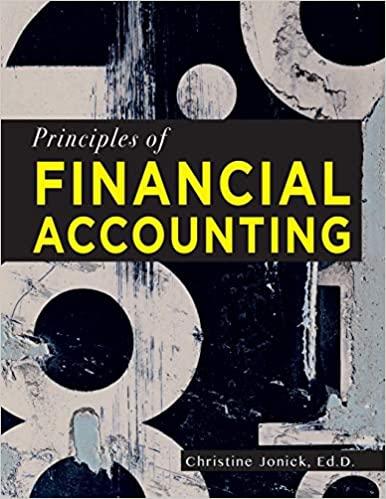Question
Balanced Scorecard, Strategic Alignment Bannister Company, an electronics firm, buys circuit boards and manually inserts various electronic devices into the printed circuit board. Bannister sells
Balanced Scorecard, Strategic Alignment
Bannister Company, an electronics firm, buys circuit boards and manually inserts various electronic devices into the printed circuit board. Bannister sells its products to original equipment manufacturers. Profits for the last two years have been less than expected. Mandy Confer, owner of Bannister, was convinced that her firm needed to adopt a revenue growth and cost reduction strategy to increase overall profits.
After a careful review of her firm's condition, Mandy realized that the main obstacle for increasing revenues and reducing costs was the high defect rate of her products (a 6 percent reject rate). She was certain that revenues would grow if the defect rate was reduced dramatically. Costs would also decline as there would be fewer rejects and less rework. By decreasing the defect rate, customer satisfaction would increase, causing, in turn, an increase in market share. Mandy also felt that the following actions were needed to help ensure the success of the revenue growth and cost reduction strategy:
- Improve the soldering capabilities by sending employees to an outside course.
- Redesign the insertion process to eliminate some of the common mistakes.
- Improve the procurement process by selecting suppliers that provide higher-quality circuit boards.
Suppose that Mandy communicates the following weights to her CEO:
Perspective: Financial, 40%; Customer, 16%; Process, 19%; Learning & growth, 25%
Financial objectives: Profits, 50%; Revenues, 21%; Costs, 29%
Customer objectives: Customer satisfaction, 51%; Market share, 49%
Process objectives: Defects decrease, 38%; Supplier selection, 33%; Redesign process, 29%
Learning & growth objective: Training, 100%
Mandy next sets up a bonus pool of $110,000 and indicates that the weighting scheme just described will be used to determine the amount of potential bonus for each perspective and each objective.
Required:
1. Calculate the potential bonus for each perspective.
| Financial | $fill in the blank 1 |
| Customer | $fill in the blank 2 |
| Process | $fill in the blank 3 |
| Learning & growth | $fill in the blank 4 |
Calculate the potential bonus for each objective.
| Financial | |
| Profits | $fill in the blank 5 |
| Revenues | $fill in the blank 6 |
| Costs | $fill in the blank 7 |
| Customer | |
| Customer satisfaction | $fill in the blank 8 |
| Market share | $fill in the blank 9 |
| Process | |
| Defects decrease | $fill in the blank 10 |
| Supplier selection | $fill in the blank 11 |
| Redesign process | $fill in the blank 12 |
| Learning & growth | |
| Training | $fill in the blank 13 |
Step by Step Solution
There are 3 Steps involved in it
Step: 1

Get Instant Access to Expert-Tailored Solutions
See step-by-step solutions with expert insights and AI powered tools for academic success
Step: 2

Step: 3

Ace Your Homework with AI
Get the answers you need in no time with our AI-driven, step-by-step assistance
Get Started


